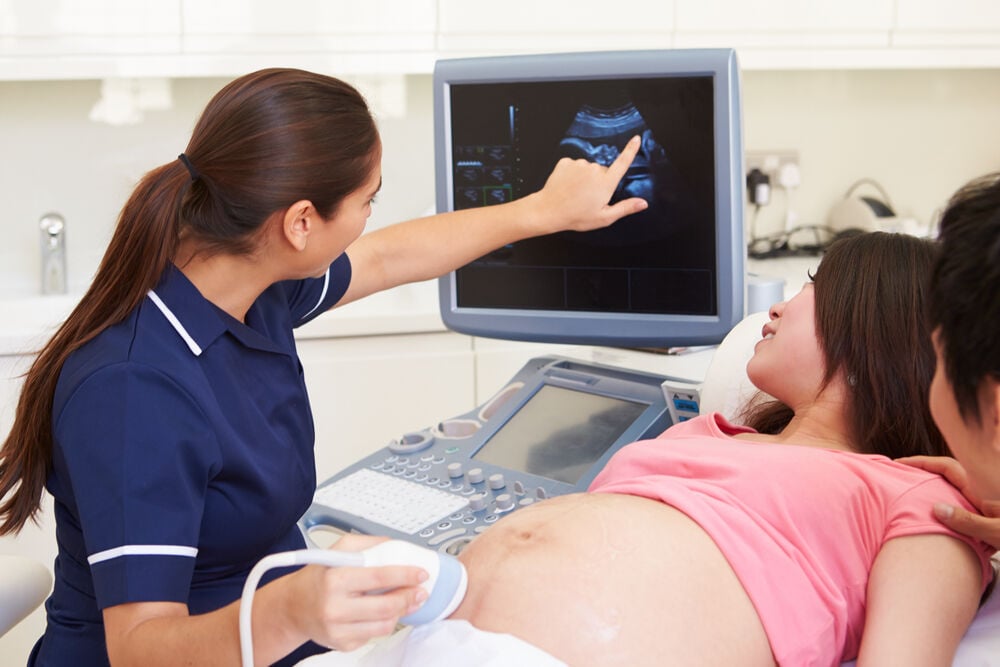Having a healthy placenta is vital during pregnancy because it’s the placenta that delivers oxygen and nutrients to your baby and eliminates waste. What does a calcified placenta mean, what are the symptoms, and how can you prevent the condition? Today you’ll find out everything you need to know about placental calcification.
-
Tracking cycle
-
Getting pregnant
-
Pregnancy
-
Help Center
-
Flo for Partners
-
Anonymous Mode
-
Flo app reviews
-
Flo Premium New
-
Secret Chats New
-
Symptom Checker New
-
Your cycle
-
Health 360°
-
Getting pregnant
-
Pregnancy
-
Being a mom
-
LGBTQ+
-
Quizzes
-
Ovulation calculator
-
hCG calculator
-
Pregnancy test calculator
-
Menstrual cycle calculator
-
Period calculator
-
Implantation calculator
-
Pregnancy weeks to months calculator
-
Pregnancy due date calculator
-
IVF and FET due date calculator
-
Due date calculator by ultrasound
-
Medical Affairs
-
Science & Research
-
Pass It On Project New
-
Privacy Portal
-
Press Center
-
Flo Accuracy
-
Careers
-
Contact Us
Calcified Placenta in Pregnancy: Everything You Should Know


Every piece of content at Flo Health adheres to the highest editorial standards for language, style, and medical accuracy. To learn what we do to deliver the best health and lifestyle insights to you, check out our content review principles.
What is a calcified placenta?
A calcified placenta occurs when small, round calcium deposits build up on the placenta, causing it to deteriorate gradually. The process occurs naturally as you get closer to the end of your pregnancy. However, if placental calcification occurs before your 36th week, it could cause complications for you and your baby. Complications such as fetal growth restriction and fetal distress are four times more likely in cases of preterm placental calcification. How does placental calcification cause such serious health complications? Excessive preterm placental calcification may lead to decreased blood flow in the placenta and compromise fetal circulation and growth.
Take a quiz
Find out what you can do with our Health Assistant
Calcified placenta causes
Your placenta naturally begins to calcify as part of its physiological aging process. More than 50 percent of placentas develop some degree of calcification at full term. The incidence of preterm placental calcification ranges widely from 3.8 percent to 23.7 percent. Studies show that possible causes for developing a calcified placenta include:
- Smoking
- Pregnancy-induced hypertension
- Placental abruption (when the placenta becomes dislodged from the wall of the uterus)
- Certain bacteria in the placenta
- Environmental factors including exposure to radiation or low-frequency sound
- Reactions to medication (antacids) or vitamin supplements (excessive calcium)
Prenatal stress may also increase your risk of placental calcification.
Calcified placenta symptoms
If you do have a calcified placenta, you probably won’t notice any physical symptoms. One of the most common symptoms that women with a calcified placenta describe is that their baby seems to move less than normal or stops moving altogether, even though they are close to term. Women with placental calcification will typically notice that their baby seems to move less when they wake up in the morning.
If after getting up and moving around, you notice your baby still doesn’t move or is moving a lot less than normal, contact your doctor or midwife right away. Remember to trust your maternal instinct and intuition. There is no harm in contacting your healthcare provider if you have concerns.
It's important to seek urgent medical advice if:
You haven't felt your baby move at all by 24 weeks.
Your baby moves less than is usual for them.
Your baby moves less than 10 times in 1-2 hours (in trimester 3).

Other possible symptoms of having a calcified placenta include vaginal bleeding, uterine contractions, or pain in the abdomen or lower back. You may also notice that your belly is not growing as it should, which may indicate a restriction in the baby’s growth. Having all of these symptoms could indicate other serious complications to your pregnancy, so contact your doctor if you experience any of them.
Placental calcification: possible complications
There is a greater risk of complications from placental calcification when you are not yet full term, especially at 36 weeks or less. If your doctor detects preterm calcification in your placenta, they may monitor your baby more closely to make sure they are getting enough oxygen and nutrients. The earlier placental calcification begins, the greater the possible risk to the baby and of preterm birth.
If your doctor finds significant calcification, they may recommend a cesarean section or induce labor to reduce the risk of the following complications:
- Preterm birth
- Low birth weight
- Low Apgar score
- Postpartum hemorrhage
- Placental abruption
- Fetal distress
- Stillbirth
The placenta is a vital organ during pregnancy, so having a calcified placenta in pregnancy could be dangerous to you and your baby if it occurs several weeks before your due date.
Placenta calcification: diagnosis

Because there are very few obvious physical symptoms of placental calcification, it is typically only detected during a routine ultrasound or sonogram. If your doctor sees signs of calcification on your placenta, they may order a new scan to determine the severity and identify if it’s negatively impacting your baby’s health.
If the placenta has degenerated significantly (described as a grade-III placenta), your doctor may recommend that you be induced or that you deliver by c-section.
Preventing placenta calcification
When you’re pregnant, there are some steps you can take to prevent preterm calcification of your placenta:
- Avoid smoking and second-hand smoke, as this can increase your risk of placental calcification.
- The risks associated with placental calcification are higher if you’re also experiencing prenatal hypertension, diabetes, or anemia, so be sure to treat those conditions according to advice from your doctor.
- A healthy diet rich in antioxidants may also reduce your risk of developing preterm calcification of the placenta.
The placenta is a miraculous organ that helps give life to your growing baby. It is responsible for respiratory, nutritional, excretory, endocrine, and immunological functions. When you’re close to term, developing a calcified placenta can be a normal part of a healthy pregnancy. Talk to your doctor if you have a known family history of placental calcification or if you are experiencing any calcified placenta symptoms several weeks before your due date.
Check out Flo.health for more great tips on how to have a healthy pregnancy and what you should be aware of postpartum.


Hey, I'm Anique
I started using Flo app to track my period and ovulation because we wanted to have a baby.


The Flo app helped me learn about my body and spot ovulation signs during our conception journey.


I vividly
remember the day
that we switched
Flo into
Pregnancy Mode — it was
such a special
moment.
Real stories, real results
Learn how the Flo app became an amazing cheerleader for us on our conception journey.




